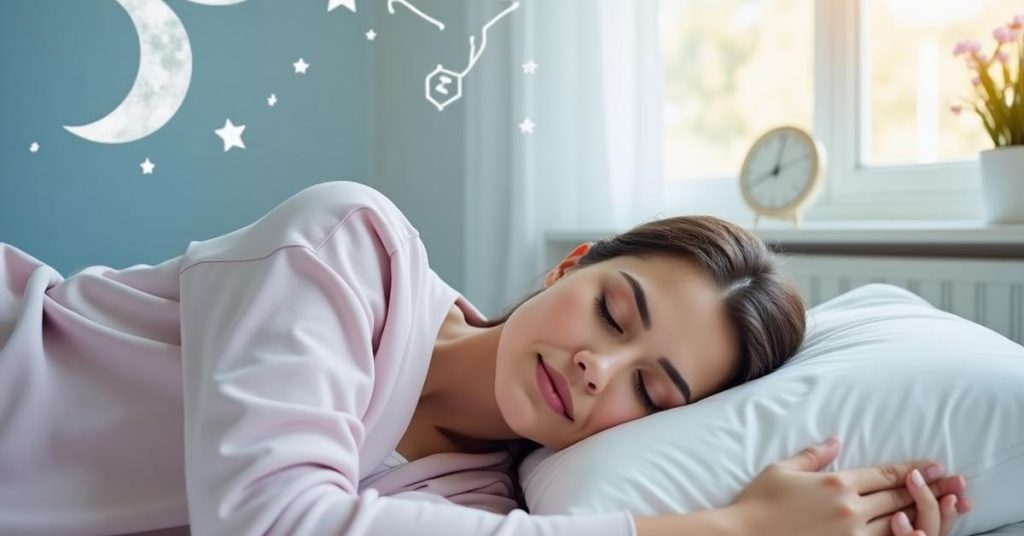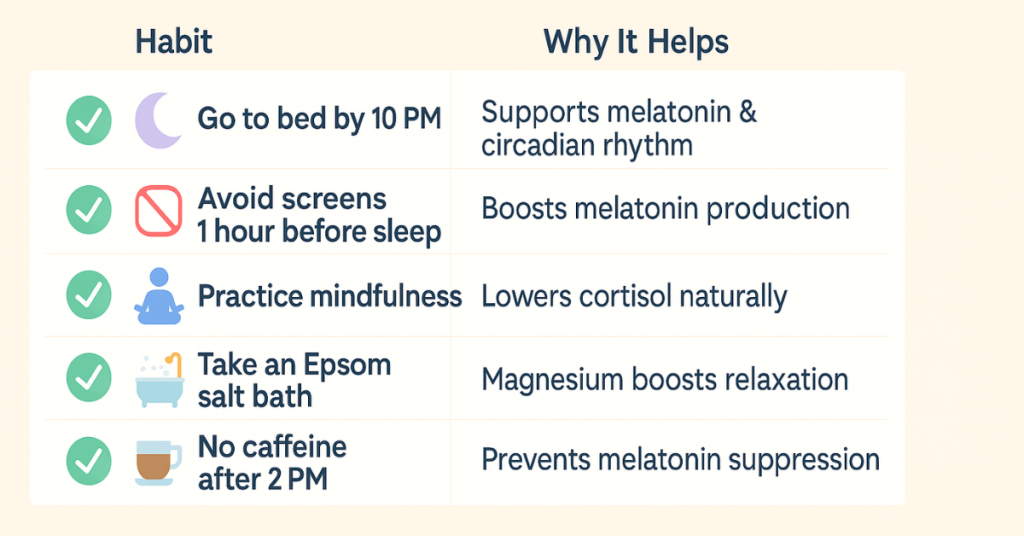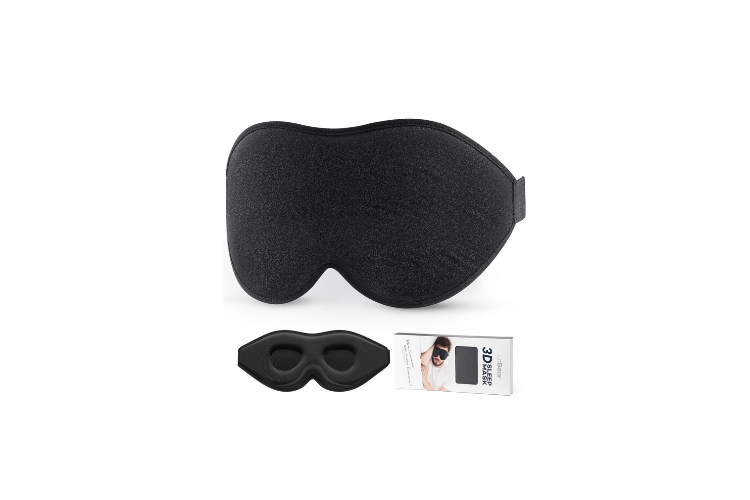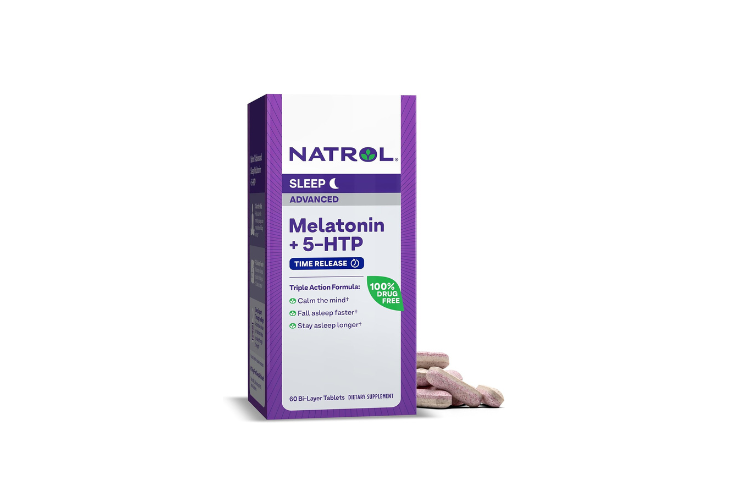The Sleep-Hormone Connection: Why Your Hormones Need Rest Too
You know sleep is important, but did you know that your hormones depend on it? From estrogen and cortisol to melatonin and growth hormone, your body repairs and resets its hormonal balance while you sleep.
When you’re not sleeping well or not sleeping enough it can throw your entire endocrine system into chaos. In this blog, we’ll explore the sleep-hormone connection, how stress affects female hormones, and practical, natural ways to reclaim both your rest and your hormonal health.

How Sleep Affects Your Hormones
1. Melatonin – The Sleep Hormone
Melatonin is produced in the brain as darkness falls. It signals the body that it’s time to sleep, and plays a vital role in regulating circadian rhythm, immune function, and even estrogen balance.
Low melatonin = poor sleep + disrupted hormonal function
2. Cortisol – The Stress Hormone
Cortisol should be highest in the morning and lowest at night. But when you don’t sleep well, it stays elevated—leading to weight gain, anxiety, and hormonal imbalance in women.
Fun fact: Just one night of poor sleep can spike cortisol the next day by up to 37%.
3. Growth Hormone & Progesterone
Deep sleep is when the pituitary gland releases growth hormone essential for cell repair and metabolism. Progesterone, a calming hormone, also supports quality sleep, especially during the luteal phase of your cycle.
Signs Your Hormones Are Being Affected by Poor Sleep
- Fatigue despite sleeping
- Hormonal acne breakouts
- Cravings for sugar or carbs
- Irregular cycles or PMS
- Anxiety or emotional imbalance
- Weight gain, especially belly fat
- Night sweats or hot flashes
How to Balance Hormones Naturally Through Better Sleep
1. Follow a Consistent Sleep Schedule
Your body thrives on rhythm. Go to bed and wake up at the same time every day—even weekends.
2. Avoid Blue Light at Night
Screens block melatonin production. Try blue light blocking glasses or limit screen time 2 hours before bed.
3. Use Magnesium for Sleep Support
Magnesium glycinate promotes calmness and improves sleep quality. It also eases PMS and reduces cortisol.
4. Create a Hormone-Friendly Bedtime Routine
- Herbal teas (like chamomile or lavender)
- Journaling to reduce mental stress
- Diffuse essential oils (lavender or clary sage)
- Gentle stretching or yoga before bed
How Stress Disrupts the Sleep-Hormone Cycle
Stress = high cortisol = poor sleep = more stress = hormonal chaos.
Here’s how to break the cycle:
- Deep breathing or guided meditation
- Ashwagandha or Rhodiola (adaptogenic herbs)
- Cut back on caffeine after 2 PM
- Support blood sugar with healthy evening snacks
Your Hormone-Supportive Sleep Checklist

Product Suggestions for Sleep & Hormone Connection
1. Herbal Sleep Teas (Supports Melatonin)

Sleep Masks & Pillows

Melatonin Supplements (For Sleep Hormone Regulation)

Conclusion: Better Sleep = Balanced Hormones
Your body does its deepest healing work while you sleep. That’s why improving sleep hygiene is one of the most powerful, natural steps to balancing hormones naturally.
By prioritizing rest, reducing stress, and using a few natural hormone health tips, you’ll feel more energized, more grounded and your hormones will thank you.







